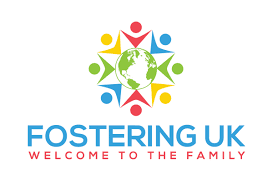Emotional challenges of fostering
Fostering is a vital service in the UK because it provides children and young people who are unable to live with their biological family with a safe and loving home environment. The challenging practice of fostering requires a lot of emotional investment from foster caregivers. In this essay, we will discuss the emotional challenges foster parents face when caring for foster children. We will also discuss the assistance provided by fostering agencies like UKF (UK Fostering), a premier fostering institution in the UK, to assist foster carers in overcoming these challenges.
What is fostering?
Fostering is the process of giving kids and teenagers who can't live with their biological family a safe and secure home setting. Various factors, such as neglect, abuse, parental illness, or family dissolution, can cause children and young people to enter foster care. While children and young adults are unable to live with their birth families, foster care is intended to give them a stable and loving home. Foster parents are essential to this process because they care for and assist young people and children who are at risk.
The emotional challenges of fostering
Both the foster parents and the foster children may experience emotional strain as a result of fostering. Foster children may have experienced trauma, abuse, neglect, or many placements, all of which can result in emotional and behavioural issues. Foster parents must be able to control these children's challenging behaviours while still giving them a safe and nurturing home. This is frequently a challenging and emotionally exhausting task.
One of the largest emotional challenges of fostering is the potential for connection and loss. Foster parents must build a strong and trustworthy relationship with their foster children in order to provide them with essential emotional support. Foster children who have been in several placements or who struggle to form bonds as a result of their past experiences may find this difficult. Knowing that their placement with them may not be long-term, foster parents must expend a lot of emotional energy in developing relationships with the children they are caring for.
Foster parents may also have emotional difficulties as a result of their foster children's behaviour. Foster parents may find it emotionally difficult to deal with hard behaviours that foster children display, such as anger, self-harm, or drug usage. Foster parents must be able to support their foster children emotionally while still setting consistent, acceptable boundaries. This can be emotionally taxing, and foster parents may want assistance and direction from their fostering organisation to handle these difficulties.
The effect on the foster carer's own family is another emotional hardship of fostering. Foster parents must give their foster children a safe and secure home environment, which may have an influence on their own family relations. Foster parents must provide care for their foster children while also making sure that their own children feel safe and supported. This can be difficult, and foster parents may want assistance and direction from their fostering organisation to handle these difficulties.
The support provided by agencies
Foster carers may overcome the emotional obstacles of fostering with the assistance and advice of fostering organisations like the UKF (the best-fostering agency in the UK). A number of services are offered by UK Fostering, including pre-approval training, continuous training, social worker assistance, and access to a 24-hour helpline.
To get ready for the emotional demands of fostering, prospective foster parents need pre-approval training. Working with birth families, handling difficult behaviours, and connection and bereavement are some of the subjects covered in the programme. Through this training, prospective foster parents can better understand the emotional difficulties of fostering and gain the skills and knowledge necessary to give their foster children the care and support they need.
Foster parents need ongoing training and development to help them cope with the emotional difficulties of fostering. Foster parents who want to advance their skills and expertise can take advantage of the frequent training and development opportunities offered by UKF.




Comments
Post a Comment